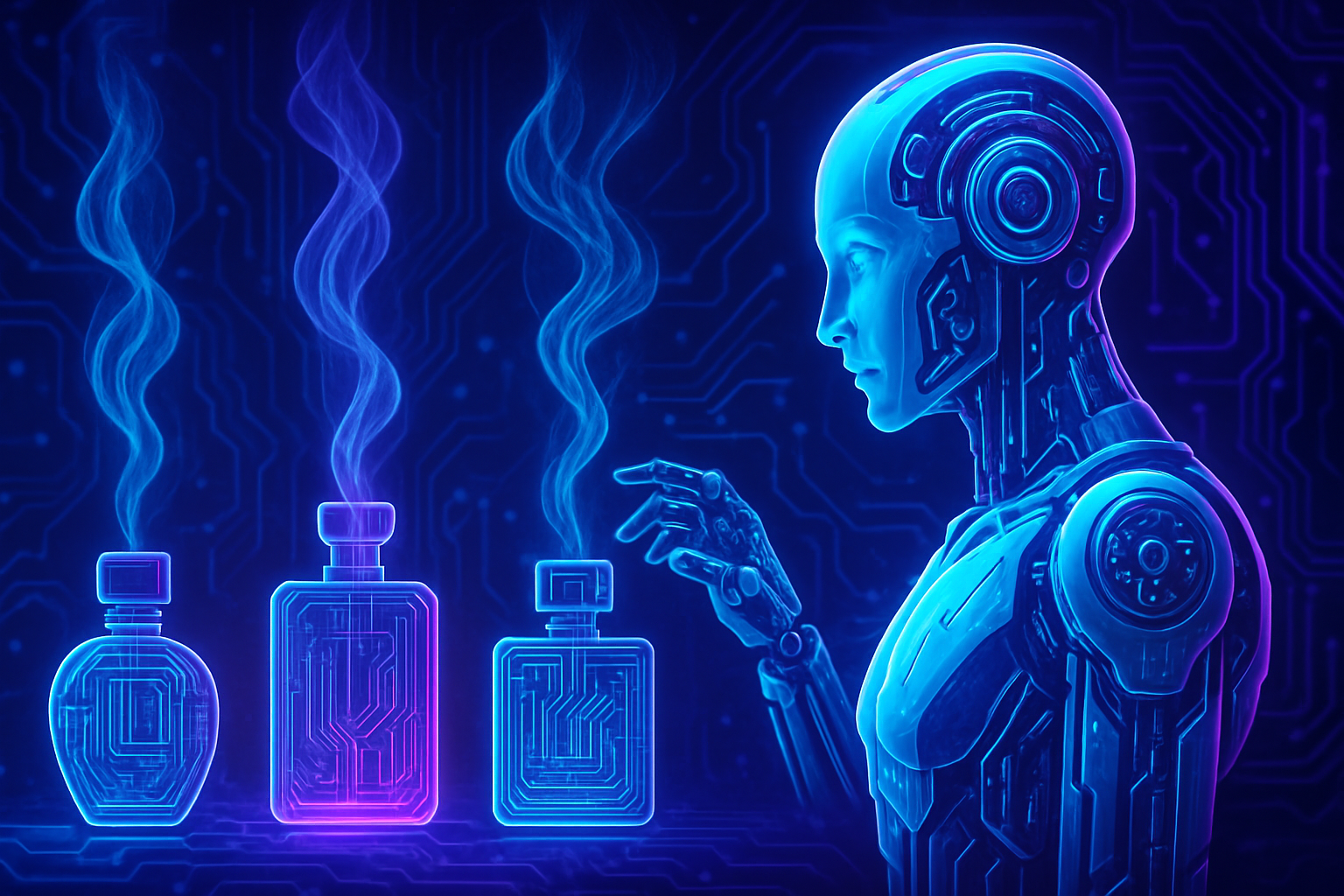The emergence of artificial intelligence in perfumery is revolutionizing the way fragrances are designed. This bold technology raises fundamental questions about authenticity and creativity within a traditional discipline. *The rise of AI contributes to an astonishing simplicity of creation*, while challenging the place of craftsmanship. *Customized fragrances can now emerge in record time*, thus erasing the historical design timelines that once characterized this field. Environmental and ethical issues intertwine with these innovations, revealing opaque processes. *Perfumery engages in a dialogue about beauty and soul*, where humanity meets machinery, thereby questioning our relationship with fragrance.
Artificial Intelligence and Perfumery
A radical transformation is taking place in the field of perfumery thanks to artificial intelligence (AI). Companies such as Osmo, a tech startup, claim to revolutionize this sector by developing an artificial olfactory intelligence. The innovation manifests itself in the creation of fragrance codes from materials such as fruits, which are then analyzed and adapted to produce unique fragrances at an unprecedented speed.
The Revolution of Creation Time
Traditionally, creating a fragrance required a long and meticulous process. Perfumers often spent months refining formulas, experimenting with modifications, and testing the balance and projection of scents. With lead times of up to six to eighteen months, the emergence of AI disrupts these norms, allowing for custom samples in just forty-eight hours.
The Integration of AI into Creative Processes
Major perfume companies like Givaudan and DSM-Firmenich are now integrating AI into their creative pipelines. These innovative platforms are used to refine formulas, manage regulatory constraints, and solve technical challenges. Thus, perfumers can focus on the creative aspects of crafting fragrances.
Impacts on Craftsmanship and Creativity
The role of AI fuels a debate: does it illuminate or eclipse traditional craftsmanship? Many professionals, like Heather, a young perfumer in training, report that AI is now an essential tool. Despite this, the downgrade of craftsmanship raises questions among experts like Michael Nordstrand, who brings up concerns about the impacts on the creativity and sophistication of olfactory compositions.
Environmental Issues
The rapid development of AI-assisted perfumery also raises environmental concerns. Osmo claims to have lower energy consumption compared to large infrastructures, asserting that their neural models use very little energy. However, the unavailability of ethical data maintains ambiguity, lacking transparency about the true ecological footprint of these new technologies.
Ethical Challenges and Social Considerations
Controversial practices are emerging as some brands use deepfake videos to simulate messages from founders, ignoring the ethics related to authenticity. Artists and perfumers find that their image is used without consent, thus eroding public trust. This phenomenon fuels concerns about the relationship between consumers and the perfume industry.
The Vision of the Future
Alex Wiltschko, the founder of Osmo, claims his ambition to broaden the range of olfactory creations, aiming to produce millions of perfumes. This desire to increase the possibilities of creations is tempered by the need to preserve the artisanal foundations of the industry. The fundamental question remains: does the use of AI in perfumery truly contribute to the accessibility of beauty, or does it alter its essence?
Frequently Asked Questions about the Impact of Artificial Intelligence in Perfumery
How is artificial intelligence transforming the fragrance creation process?
Artificial intelligence allows for shortening the fragrance creation process by optimizing formulation, enabling creators to offer personalized samples in just 48 hours, compared to several months traditionally.
What AI tools are used by perfume houses to enhance formulation?
Tools like Givaudan’s Carto system and DSM-Firmenich’s EmotiON use AI to analyze compositions and optimize formulas, thus helping perfumers create more balanced scents that cater to consumer preferences.
Can the use of AI harm the craftsmanship of perfumery?
Concerns exist regarding the loss of craftsmanship and human creativity, as AI could reduce the traditional role of perfumers in creating unique and personalized scents.
How does AI democratize access to perfumery?
AI contributes to democratizing perfumery by making fragrance creation more accessible and less expensive, allowing a larger number of people to explore and create perfumes.
Are there environmental concerns related to the use of AI in perfumery?
While some AI tools are designed to reduce energy consumption, questions remain regarding their ecological footprint, particularly concerning resource use and the environmental impact of raw material production.
What are the advantages of AI in selecting raw materials for perfumery?
AI helps to quickly identify the most appropriate raw materials for a given formula and to anticipate variations in harvests related to climate change, ensuring quality and consistency in creations.
How do younger generations perceive the use of AI in perfumery?
Younger generations, particularly Gen Z, view AI as an integrated tool in their creative process, using it to generate ideas and refine designs rather than as a mere reference or a source of inspiration.
What challenges does the integration of AI pose in the perfume industry?
Challenges include the need to ensure transparency in creation methods, respect for traditional craftsmanship, and the possibility of excessive standardization of fragrances at the expense of olfactory diversity.
Are consumers aware of the use of AI in beauty products?
The majority of consumers do not yet realize how integrated AI is in their daily beauty products, highlighting a growing need for education and transparency from brands.






